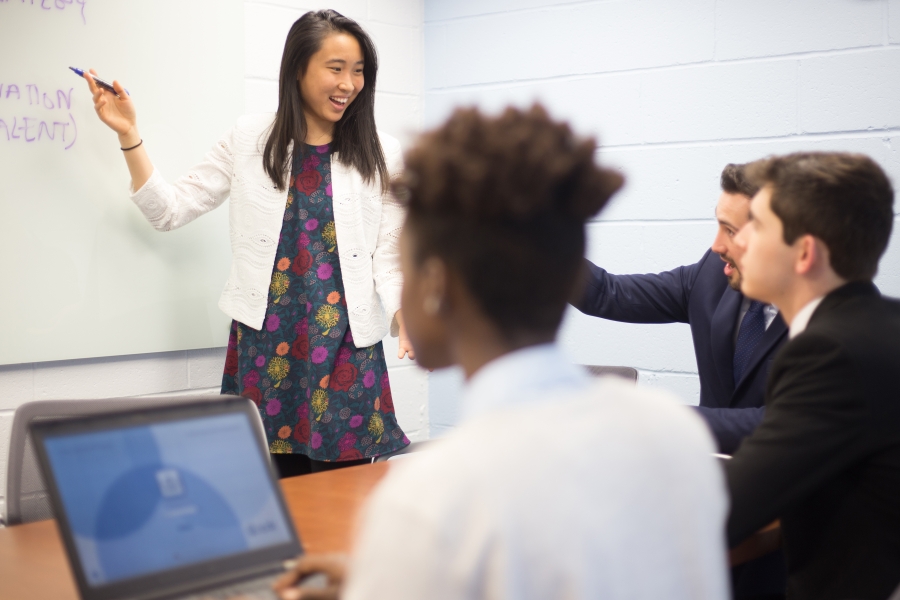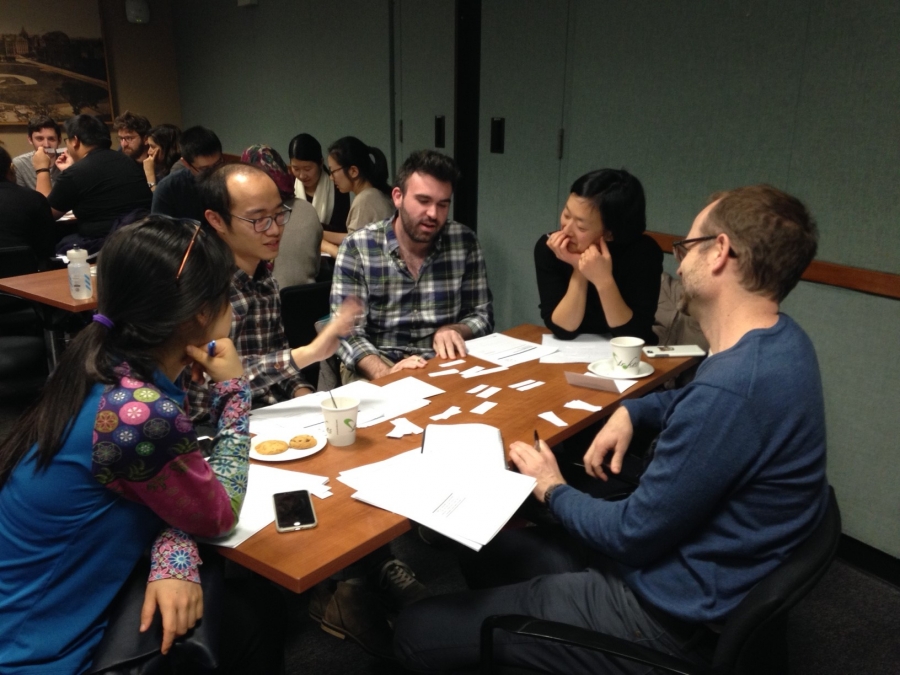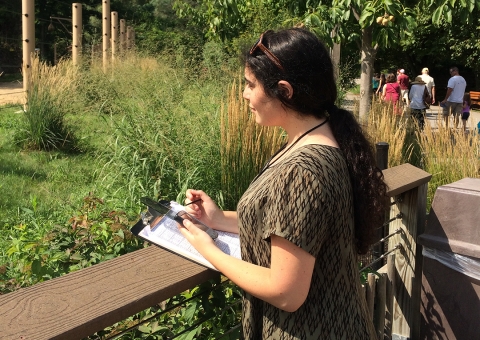Now you’re in the swing of things. Keep the momentum going!
You may have finally figured out how to navigate the commute and the names of your coworkers, but there’s more to learn to become a fully-fledged superstar intern. Look for opportunities – in regard to not only your projects, but also to the people around you, your supervisors, and the larger goals of the company.
Consider how the projects you’re working on fit into the company’s objectives:
- How can you do your work so that you are learning as much as possible from it?
- How can you go above and beyond the project or task you’ve been given?
- What is needed in the organization? Can you help the organization meet those needs to some extent?
- What will make your team run more smoothly? Can you help make that happen somehow?
 |
Draw connections between work and other areas of your life
Drawing connections between your internship, your life at Columbia, and what you are studying in school, allows you to find deeper meaning in your work. The link between your “Text, Magic, and Performance” class and your internship may not be immediately evident, so think critically about all the ways your academic and professional life interact:
- Are there concepts you learned in class you’ve seen play out in your internship?
- Do you see any connections in terms of the types of skills you’ve learned through school and what you’re doing at work?
- Outside the classroom – are there clubs, activities, social activities that you’ve found have helped you develop skills that you’ve used during your internship?
- What did your supervisor and colleagues study in college?
- What classes, specific assignments, student activities/clubs, papers or research have you completed that have helped you in your internship in some way?
 |
Reflect on your experience thus far
So do you know what you want to do with the rest of your life yet? It’s okay to still be unclear about your long-term goals. A good way to learn more about what a career looks like down the road is to do some informational interviewing. Before you jump into the informational interview, take some time to reflect on your internship experience so far. Remember, whoever you’re talking to is going to ask questions to get to know you, too.
- Reflect on your goals: Look back on your initial goals for this internship. What progress have you made?
- Reflect on Your Work: Before you forget what valuable experiences and skills you developed, take the time to jot down the projects you completed, the people you worked with, and the skills you gained. What was a breeze? What was challenging? What areas do you want to go deeper in? What areas do you want to not touch in the future? Do this now and thank yourself when you have to update your resume for Fall and Spring recruiting for next summer’s internships.
- Get Feedback: If we asked you how your supervisor would describe you and your work, do you know what they would say? Take this week or your last week to wrap up with your supervisor. Thank them for the experience, for the opportunity, and get their thoughts on how they feel about your contributions this summer. You can have these conversations with others in your office as well.
 |
We’re here to talk things out!
Schedule an in-person, phone, or Zoom appointment with a career counselor via LionSHARE to discuss your internship goals and progress.


